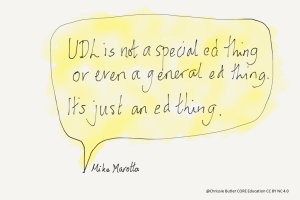Effective assessment practices
Guidance and best practices for effective staff assessment and evaluation at the University of Waikato.
Assessment is the systematic process of gathering and reviewing measurable evidence and information about a student’s achievements and progress. As educators, we should use this evidence and information to understand a student’s learning needs, improve the learning experiences, provide feedback to the student, and reflect on our pedagogy and curriculum design.
See these pages for practical advice on:
Assessment principles
The University of Waikato recommends the following principles be considered to support effective assessment of student learning.
Assessment should:
- Be designed to improve student learning.
- Have an explicit purpose, and be aligned to paper and programme learning outcomes.
- Be designed in ways that are inclusive, and consider the diversity of learners.
- Help students learn and/or measure their achievement in respect of learning objectives or outcomes.
- Generate productive dialogues amongst and between educators and students.
- Enable educators to recognise the effectiveness of their curriculum and teaching and shape their practices accordingly.
- Involve judgements on progress and achievement that are based on reliable evidence.
Universal Design for Learning
 With reference to the the Universal Design for Learning (UDL) framework, a set of guidelines for educators to ensure that “all students can access and participate in meaningful, challenging learning opportunities” (https://udlguidelines.cast.org), assessment should:
With reference to the the Universal Design for Learning (UDL) framework, a set of guidelines for educators to ensure that “all students can access and participate in meaningful, challenging learning opportunities” (https://udlguidelines.cast.org), assessment should:
- Be aligned to learning outcomes (does my assessment reflect and measure the learning outcomes?).
- Be written in a way that is clear, unambiguous, unbiased, and comprehensible for learners from any background.
- Be relevant and authentic (are my assessments relatable and culturally relevant and appropriate? Will my students know the what, how and why of their learning?).
- Encourage engagement, and enable a student to persevere.
- Consist of both formative and summative tasks (will my formative assessment enable reflection and pedagogical decision-making?).
- Be barrier-free for all students (are there any accessibility barriers? What might be preventing students from showing me what they know?).
- Be variable and flexible, acknowledging all students, learning styles and backgrounds.
- Be accompanied by marking rubrics, making the goals of the assessment clear to students.
- Be followed by prompt, clear, relevant feedback, enabling students to know where they are and what they need to do to improve.
- Be collegial (to what extent can I call on colleagues and critical peers to design and refine my assessments?).
 There are many different ways to categorise assessment: internal and external; formal and informal; evaluative, diagnostic, formative, and summative; written, verbal, and performative; online and offline.
There are many different ways to categorise assessment: internal and external; formal and informal; evaluative, diagnostic, formative, and summative; written, verbal, and performative; online and offline.
Approaches to assessment and the design of assessment tasks will also vary between the disciplines.
Assessment design
When designing an assessment, lecturers need to consider many factors, including:
- What are my beliefs around assessment, and to what extent do my beliefs influence how I design assessment?
- What is the purpose of the assessment?
- What are the enablers and obstacles in using a particular form of assessment?
- Is the assessment realistic and achievable for students?
- How will the assessment be evaluated?
- Is the assessment fair, reliable, valid, consistent, effective and transparent?
- To what extent will students be able to breach academic integrity principles while they complete the assessment?
- Will offshore and online students have equivalent experiences to on-campus and face-to-face students?
- Are the students being over-or under-assessed in the paper and the programme?
Assessment tasks
Assessment within a paper is undertaken by a range of assessment tasks. In some papers this is a combination of internal assessments and formal examinations, while in other instances, all the assessment may be internal. Internal assessment can be due at different times throughout the semester and is managed by the individual lecturer. Formal examinations are managed centrally by the Student Services Division and are held outside semester times.
Assessment formats and modes
 The final piece of the assessment and learning outcome puzzle is the format or mode (e.g. oral, written, creative) in which students demonstrate achievement of the learning outcomes.
The final piece of the assessment and learning outcome puzzle is the format or mode (e.g. oral, written, creative) in which students demonstrate achievement of the learning outcomes.
Ensure that the mode is tied to the learning outcomes. If developing written communication skills is one of your learning outcomes, then it is important to include at least some assessment that involves writing. However, consider if students need to demonstrate that skill in all your assessments.
Providing different assessment modes and/or allowing students a choice of mode in which to demonstrate their achievement is an important component of inclusive assessment design. This allows students with different skill sets to shine, and it gives students who might struggle with a particular mode other opportunities to more comfortably and fully express themselves.
